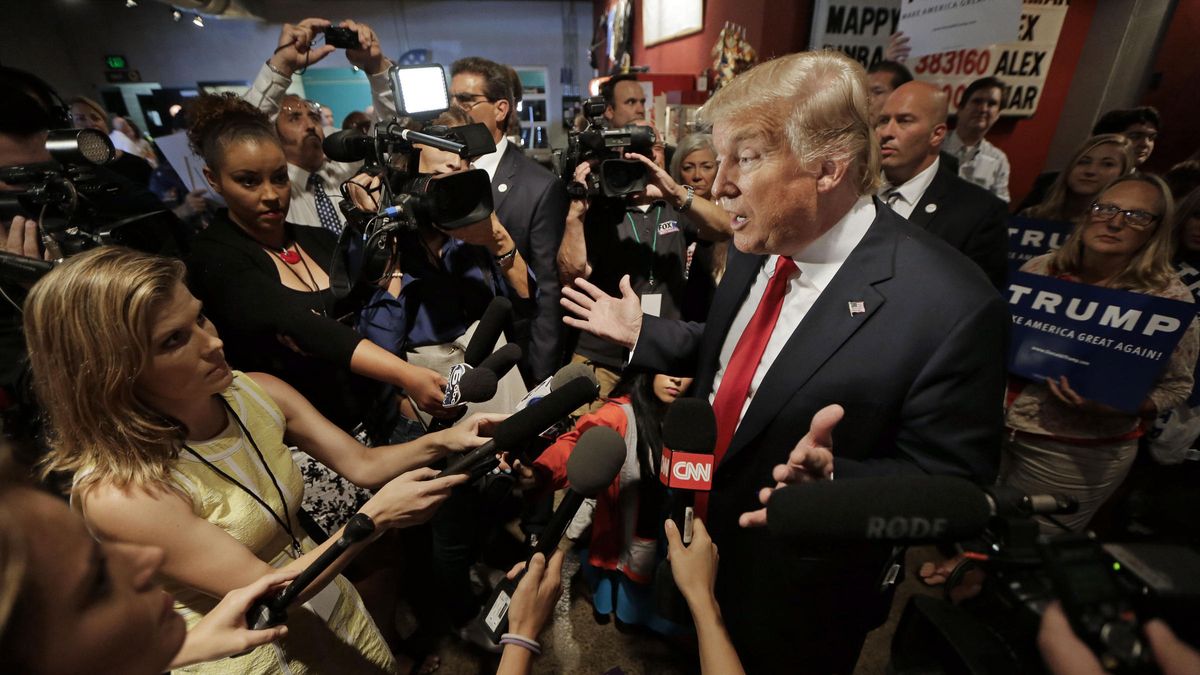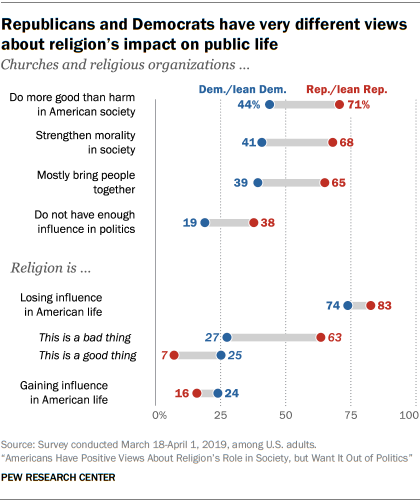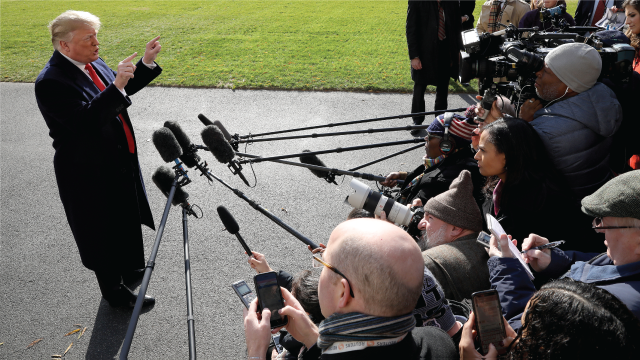Media bias: institutional problem or something deeper?

A few minutes every morning is all you need.
Stay up to date on the world's Headlines and Human Stories. It's fun, it's factual, it's fluff-free.
For years, many political observers have lamented the polarized state of American politics.
Over the past several decades in the United States, politics has veered towards what seems like a zero-sum quest for moral supremacy, with each side hardening its views and viewing the “other side” as an increasingly hostile – and perhaps downright evil – presence.
Data in the social sciences backs this up.
According to Pew Research, Americans are now much less likely to have a mix of conservative and liberal views.
In 2017, Pew found that just 32% of Americans could be categorized as having “mixed” views. By contrast, two years prior, in 2015, that number was 38% while the number of Americans purporting to have mixed views in both 1994 and 2004 was a comparatively sizable 49%.
Growing partisan gaps have impacts on society outside of politics. From views on religion and social norms, to the types of communities people want to live in, polarization is impacting many aspects of American life.

In a survey that has become rather well known, Gallup, an American analytics company, found in 2016 that 60% of Democrats and 63% of Republicans wanted their sons or daughters to marry someone with the same party identification. Only 45 of Americans in the survey responded that they didn’t care either way.
In 1958, Gallup found that only 33% of Democrats and 25% of Republicans cared about the political affiliation of their children’s partners.
How much can this problem be attributed to the consumption of mass media? While some say that the media has contributed to growing polarization, others argue that the fault may not lie directly with journalists and news outlets, but with the way modern society seeks out and rewards partisan news with views and revenue, backed by a political system that encourages uniformity.
Partisans seek out news that confirm their biases

During the presidency of Donald Trump, trust in the news media has become further polarized, and is heavily dependent on party affiliation.
Recent Pew data shows that 76% of Democrats have at least a fair amount of confidence in journalists’ coverage generally, while for Republicans it’s only 30%.

When looking at trust in specific outlets, however, a more nuanced picture emerges.
Republicans are much more likely to place their trust in Fox News than any other source, while Democrats are more likely to trust a wider array of sources, including CNN, NBC, ABC and PBS.
“People with extreme views can have a pretty good career, especially in the right-wing media space,” argues Jonathan Haidt, a social psychologist at NYU. “The mainstream media does lean left, [while] the right-leaning media is more of a commercial outrage industry,” he added.
With that said, many partisans of all stripes still seek out news sources that confirm their biases, especially on social media platforms and increasingly niche internet sites that cater to specific points of view.
A peer-reviewed study by social scientists at the University of California, Irvine, backs up this sentiment, finding that liberals and conservatives are equally susceptible to accepting the validity of information based on preceding beliefs.
Selection bias could be also be an issue
In an interview with The Millennial Source, the founder of Maagnit, a website dedicated to bringing left and right-wing news sources together on its site, regardless of its status as a “mainstream” or “independent” source, argues that selection bias in news coverage – or the tendency to focus on certain stories at the expense of others – is one of the most troubling aspects of modern media.
“Traditionally, bias would often appear in the way a story was written – the internals of the story itself,” the founder, who was unwilling to provide his name, argued. “Today, major news networks are completely ignoring certain stories that don’t support what they interpret as the worldview of their viewers and readers.”
He went on to argue that conservatives and liberals don’t just disagree on issues, they think past each other, sometimes ignoring or downplaying whole issues that are important to the other side.
“A news network with mostly right-leaning, conservative viewers will not cover a story that is critical of the right and supportive of the left. Likewise, left-leaning networks will completely ignore a story that supports a more right-leaning, conservative viewpoint. This selection bias creates powerful echo chambers for news consumers and leads to great divisions amongst the tribes of people who are following different media outlets,” he concluded.
Is the political system partly to blame?
In the US, the entrenchment of the two-party system may also play a role in steering people towards dedication to a certain side, not unlike a sports rivalry.
“The worst number of political parties to have in a country is one,” said Haidt. “But the second worst is probably two. There is something about ‘us vs. them’ that really activates our ancient tribal circuits.”
In this sense, partisans may well feed off polarized news as a way to rationalize their beliefs and give themselves that little hit of dopamine that comes along with supporting their team. “Extreme partisanship may be literally addictive,” he added.
[article_ad]
Have a tip or story? Get in touch with our reporters here!
Sign up for daily news briefs from The Millennial Source here!




Comments ()